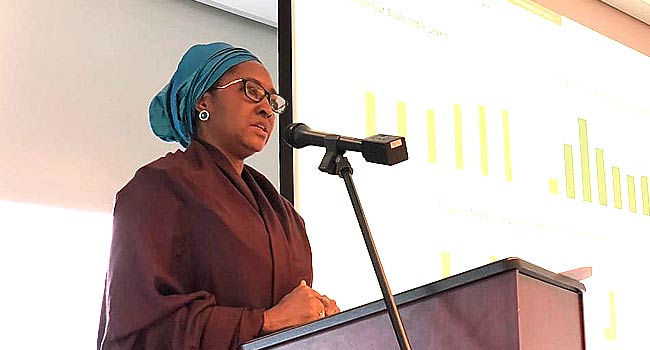Nigerian states expended a whopping N4.319 trillion to fund their operations in the 2018 fiscal year, according to a survey by BudgIT, a fiscal governance organisation.
According to the survey released in Abuja yesterday, of the amount, recurrent spending gulped N2.67 trillion, while a paltry N1.648 trillion was devoted to capital projects.
Capital projects are supposed to touch the lives of the masses.
The survey also revealed that most of the states were grossly unable to realise their revenue targets, due to grossly inadequate Internally-Generated Revenue (IGR); hence their over-reliance on the Federation Account Allocation Committee (FAAC) takings.
It cited Cross River that budgeted N1.04 trillion but was only able to spend N76.2 billion, consisting of N38.7 billion for capital and N37.5 billion in recurrent cost.
Ondo emerged the worst state in capital deployment, as only N8.9 billion was released for capital projects, whereas N89.4 billion was expended on recurrent.
Lagos, on the other hand, was the largest spender on capital projects with N309.3 billion, while spending N199.9 billion on recurrent.
BudgIT revealed that the figures were derived from the states’ audited accounts and the National Bureau of Statistics (NBS) records.
It claimed that 33 of the 36 states could not finance their recurrent expenditure without federal allocation.
The report entitled ‘State of States 2019’ explained that only Lagos, Rivers and Akwa Ibom governments could finance their recurrent expenditure independent of federal allocation.
It wondered why a state like Delta was running huge recurrent expenditure of up to N200 billion, adding that despite Bayelsa’s small population, it still had recurrent bills as high as N137 billion.
However, Ebonyi reportedly had a recurrent bill of N30 billion, Sokoto N38 billion, Jigawa N43 billion and Yobe N35 billion.
Speaking on the outcome of its findings, the Lead Researcher of BudgIT, Orji Uche, said only 19 states could meet their expenditure with IGR and federal allocation.
With the current uncertainties facing the oil market, she urged state governments not to rely heavily on federal allocation.
She said, “The implication of looking at this index is to enable us to understand how many states can sustain themselves without federal allocation. And by sustaining themselves, we are looking only at recurrent expenditure.”
Also speaking on the report, Senior Economist of World Bank, Yue Man Lee, said the implication of having low revenue was that the amount the country could spend on human development would be restricted.
She said over the years, the fiscal capacity of states to generate the needed revenue for their operations had reduced.
Her words, “The broader fiscal challenge that Nigeria faces is low revenue that constrains the budget envelope. This, when put in plain terms, is how much revenue that is available to spend on public service and investments in human capital.
“Nigeria is spending, and government spending as a percentage to Gross Domestic Product (GDP) is way lower than other countries at similar income per capita level. This is because of the exceptionally low revenues that Nigeria collects.”
Lee said that with the country having revenue to GDP ratio of about eight per cent, there was a need to come up with measures to boost revenue.
The low level of government spending on capital projects contributes to low levels of development outcomes, she added.
Guardian


